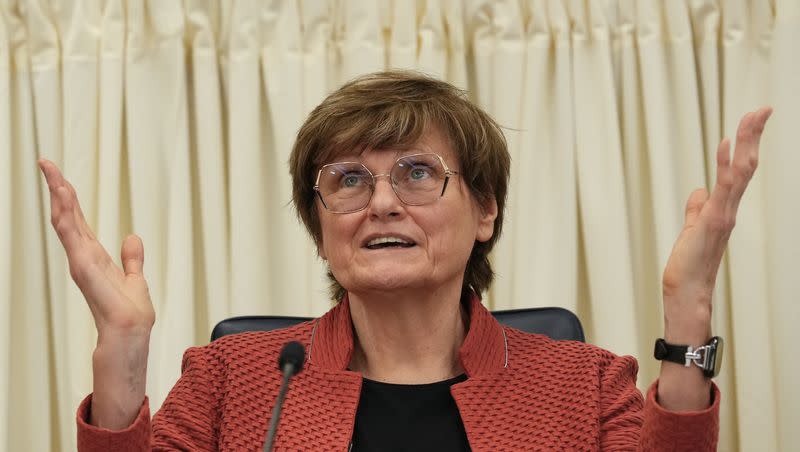Research not funded, demoted and then let go. She just won the Nobel prize

- Oops!Something went wrong.Please try again later.
- Oops!Something went wrong.Please try again later.
Ten years ago, Katalin Karikó, Ph.D., was escorted out of her lab at the University of Pennsylvania, kicked out and forced to retire after years of not having her research funded, and given a demotion prior to being let go. Last week, she received the Nobel Prize in medicine for the research that led to COVD-19 vaccines.
For decades, Karikó had focused her research on mRNA and the possibility that it could be used to program cells to produce their own cures. Many of her colleagues at Penn denigrated her research, and some refused to work with her. She was demoted.
Eventually, she persuaded another Penn researcher, Drew Weissman, Ph.D., to join her in her efforts to modify mRNA. Weissman, an immunologist, was interested in developing a vaccine against HIV. He was a joint recipient of the Nobel Prize this year, with Karikó.
Related
Getting past the problem
The problem with single-stranded mRNA, or “messenger RNA,” is that it is less stable than double-stranded DNA, and hard to work with. “Researchers had to wear gloves just to touch equipment coming in contact with the molecule; just breathing on the instruments made them unusable for mRNA,” reports The Wall Street Journal.
The molecule also degrades quickly, and early experiments found that it continually triggered an inflammatory response. Finally, Karikó and Weissman found a way to modify one of the base cellular components to avoid the inflammatory response. This allowed the molecule to get into the cells and create proteins that could be used to produce vaccines and medications.
Leading scientific journals rejected their research. Finally, in 2005, they were published in a peer-reviewed journal, Immunity. It didn’t lead to any additional funding, and it gained very little notice. She still lost her job, eight years after that study was published. However, a still-small German startup called BioNTech licensed the work of Karikó and Weissman to work on developing cancer vaccines.
Ready for COVID-19
In 2008, Derrick Rossi, Ph.D., an assistant professor at Harvard Medical School, came across the Karikó and Weissman paper while looking for a solution to cell die-off in his lab. “Elaborating on Karikó and Weissman’s research, he published his own research in 2010. With funding raised on the back of that paper, he cofounded a new upstart in the biotech world; he called it Moderna.”
When Karikó was escorted out of Penn a decade ago, she went to work with that German startup, BioNTech, commuting from her home near Philadelphia to Germany for nearly a decade. When scientists from China posted the genetic sequence of a brand-new virus that had begun decimating Wuhan in early 2020, BioNTech and Moderna went to work. The decades of research paid off: BioNTech designed an mRNA vaccine in hours, and it took Moderna less than a weekend.
The idea behind both vaccines, reported The New York Times in 2021, was to “introduce mRNA into the body that would briefly instruct human cells to produce the coronavirus’s spike protein. The immune system would see the protein, recognize it as alien, and learn to attack the coronavirus if it ever appeared in the body.” The vaccine also used a lipid bubble to encase the mRNA — that also came quickly, after 25 years of work by multiple scientists.
When the first results of the Pfizer-BioNTech study came on Nov. 8, 2020, it showed that the mRNA vaccine offered a powerful immunity to the new virus. “Oh, it works,” Karikó said to her husband. “I thought so.” Then, she celebrated by eating an entire box of Goobers chocolate-covered peanuts, her favorite snack.
In early 2021, she ran into the man who had led her out of her lab at Penn. He was going to give a lecture about her, he said. “You will talk about me?” she asked him. What about?
The focus, he said, would be on how he’d missed it — one of the greatest scientific and humanitarian achievements in their lifetimes, and he’d let the woman responsible for it walk out the door.
On Monday, the University of Pennsylvania heralded “RNA pioneers” Karikó and Weissman for their life-saving work. There was no mention that they let her go.
Holly Richardson is the editor of Utah Policy.

